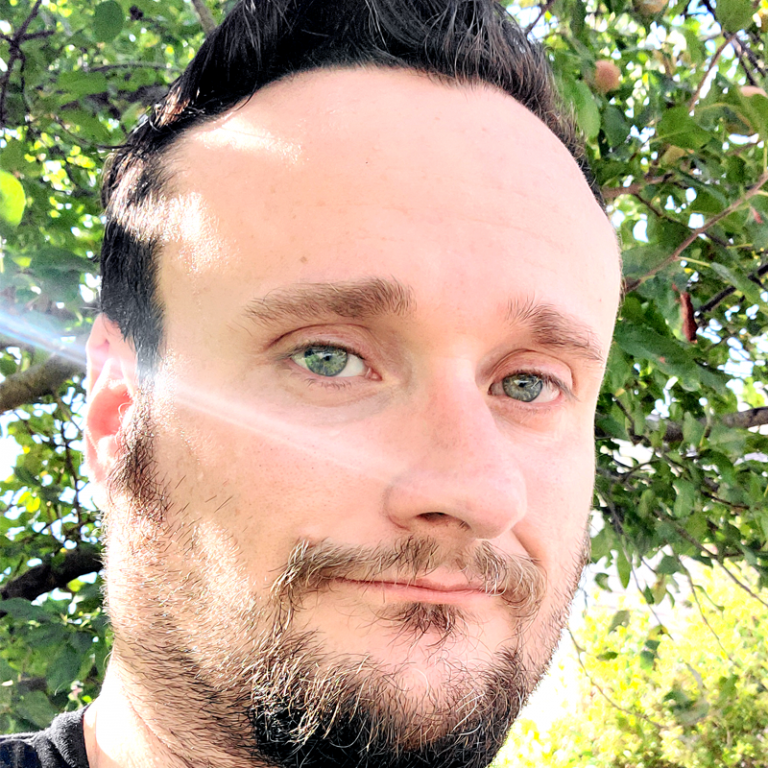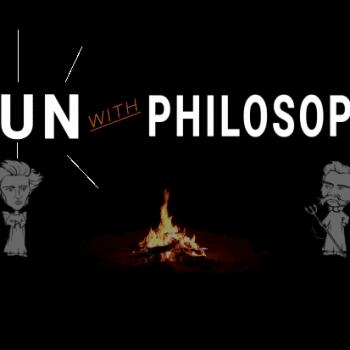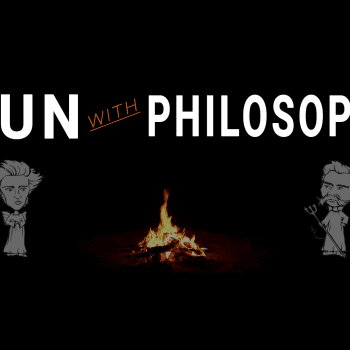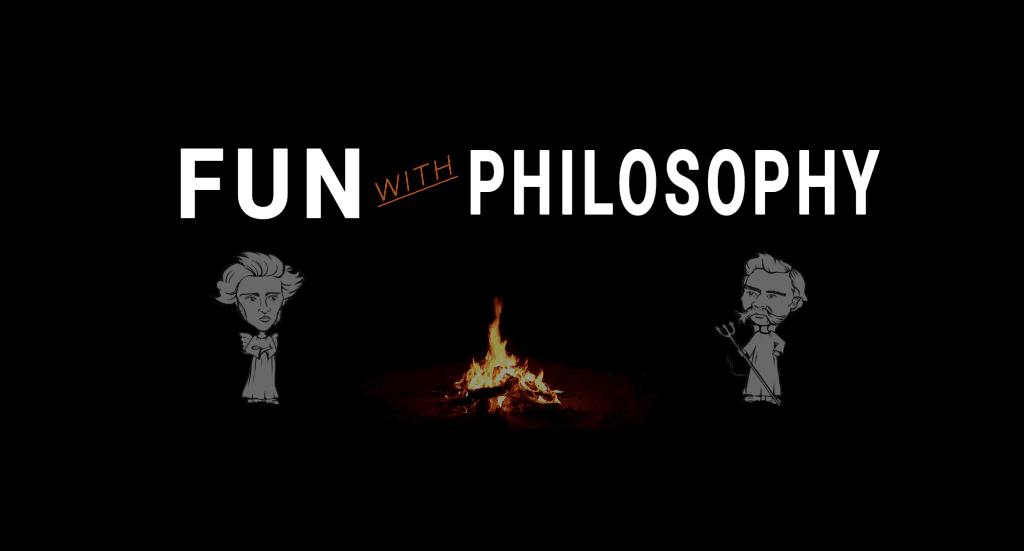
I don’t know if other philosophers lay up at night thinking deeply about mundane things but such has been my plight since I was a boy. This was, in part, why I decided to study philosophy in Graduate school. Many who study philosophy do so because they desire answers to life’s biggest questions. But for me, it was always about how to ask the right questions. It was in learning to ask those questions that got me to understand how to find the answers.
I also have an issue with modern philosophers who have long capitulated to science. The philosopher is no longer the one to hold the intellectual world accountable. Instead, they have compromised their discipline in order to provide an intellectual foundation for science and its political agenda. Philosophers these days are simply historians of thought who lack the courage to hold the world accountable.
With that said, let’s have fun with philosophy.
-
If some other Sperm Fertilized some other Egg, would I still be Me?
At first glance, this may look banal; perhaps even juvenile. Regardless, philosophers actually think about questions like this. It may seem like there is no possible way to know the answer to this question. It even provokes the question of nature versus nurture, which in most cases is what philosophers end with.
In order to come up with some answer it is important to understand the scientific aspects of DNA as one component of identity formation. Since we know that not all sperm and eggs carry the same DNA it seems that the answer to the question should be no, I would still not be me. One might point to the example that I could have been born female, which would have created an entirely different identity.
The best way to understand the relationship of nature and nurture is that nature provides the foundation for nurture to build upon. This means that there are any number of possibilities for personalities based on nature and nurture. Therefore, the question of nurture is a different one entirely.
However, in the context of our question, we are only interested in nature. But there is still an outstanding variable that we must consider – God. I do not think that God manufactures every child that has ever been born (well, maybe 1 🙂 ). But if we believe that God has any sort of relationship with humanity then I think we must consider that there is at least a purpose for every person. Additionally, if we believe that God has a will, then we must also believe that this purpose and will intersect. If this is the case then the only conclusion is that regardless of DNA, I would have always been the me God wanted me to be. Certainly, there always existed the possibility of some other existing in my place but since I exist in the real world, then I would have always existed regardless of what was possible or not.
- Is the Multiverse Theory Plausible?
For a number of years, scientists have used the idea of alternative universes as a possible way to explain reality. The idea is that there exist parallel universes that account for all possibilities in life where different decisions are made resulting in different outcomes.
First I want to point out that this is not novel. Philosophers have been using the idea of the possible worlds since Leibniz coined it in the 17th century. Leibniz, who was also a mathematician, used it as a source of logic in order to rationalize the problem of evil. Since then, the idea of possible worlds has been a mainstay in analytical philosophy.
The difference between its use in philosophy and science is important. In philosophy, it is used as a mental model of evaluation. In science, it is not contained mentally but exists in reality. That is where I take issue.
There exists an ontological problem with this theory. Let’s begin by asking the question, what is the thing that makes me, me? It’s the fact that I have consciousness and am self-aware. If I existed in any other world as me, then my consciousness would be duplicated across all possible worlds. Since knowledge of myself only exists in the actual world, then it cannot also exist in some other world simultaneously – even if my circumstances are different. Even though my circumstances might be different, the thing that makes me, me never changes. Therefore, since I have no knowledge of myself in any other world than this one, I can only actually exist in this one. This means that the idea of me existing in other worlds in some real way can’t be true.
- Is it Possible to Time Travel?
No. The question of time travel is certainly a romantic one but suffers from a significant amount of ontological/teleological problems that have long been ignored. That is, the same object cannot share the same space as itself because there can only exist one me at a time (I explained why in the previous section). The atoms that make me, me only exist singularly. In other words, there is no place on the planet or in the history of humanity where my molecular structure ever existed apart from my own timeline. There was never another me at some other point. I am utterly unique just as every other human being on the planet is. Moreover, in order for my molecular structure to be in the presence of another me, that molecular structure must be duplicated.
But let’s say for the sake of the argument that it is possible to duplicate my molecular structure. In order for time travel to be possible, it must be the case that every iteration of me that has ever existed is copied and stored someplace so that when I travel in time I can access that version of myself.
This seems unlikely, however, let’s say again that somehow it is possible. These iterations would require us to understand how they are recorded and know where they are stored. Does this mean there is some higher power that is recording these events? If so, then what is its purpose? Certainly, God would not allow such things to occur apart from them having a purpose. Is there any purpose whatsoever in time travel?
- Did it go bang?
A long-held theory of the universe and still the leading explanation for the existence of all things states that at some point a singularity became so dense that it essentially exploded. This explosion began spreading out in all directions eventually forming the place we all exist in. This of course means that the universe is still expanding outward from that original blast.
Why this theory is still predominated boggles the mind. Perhaps it is because there is yet to be an alternative theory that both vibes with Einsteinian physics and quantum physics. This would be fine, except the Big Bang Theory is still taught as though it were true.
The Big Bang Theory suffers from a paradox. If space and time share the fabric of the universe; then how was the expansion of the universe possible – if there was not yet a space for it to expand into? Something cannot create the thing it needs to exist. Additionally, what did this initial singularity exist within, if not space?
Unacceptable explanations have varied from: “That is a question science cannot answer” to “It was expanding into nothing”. And yet, many of these scientists have no problem making metaphysical claims like God doesn’t exist. Until science cuts the umbilical cord with Einstein it is unlikely that they will ever come up with a more plausible explanation.
- Does what we see in the Universe Actually Exist?
I have been asking this question for years and every time I ask it, I encounter a blank stare. I’m not even sure what the stare means. Does it mean that the person cannot believe someone can be that stupid? Does it mean that my question was so profound that their mind just exploded? Did the question induce a stroke? I don’t know. I would like to explore this question here. Allow me to frame the question this way.
When we view objects in space using our incredibly powerful telescopes, we see what an object looked like in the past. Moreover, the further we peer into space the further in time we see because it has taken the light emitted from that object longer to get to us. This means that when we view these objects, we are never viewing them as they are but as they were at some other time in the past.
This leads me to ask a few questions:
- How do we know any of it actually exists right now?
- If we can’t know what is out there right now, then how can we be mathematically certain about anything in the universe?
- Doesn’t this mean that much of science is based on what we perceive to exist rather than what we know exists?
- If so, how does this not violate the core tenets of science’s materialism?
Unfortunately, I am not sure this is an answerable question but I welcome your thoughts.
You can view my UNenlightenment YouTube Channel HERE
You can view my UNenlightenment Podcast HERE
You can follow me on FaceBook HERE
Transform your life today by getting my book UNenlightenment HERE
Learn about my upcoming book The Kingdom of Man HERE













